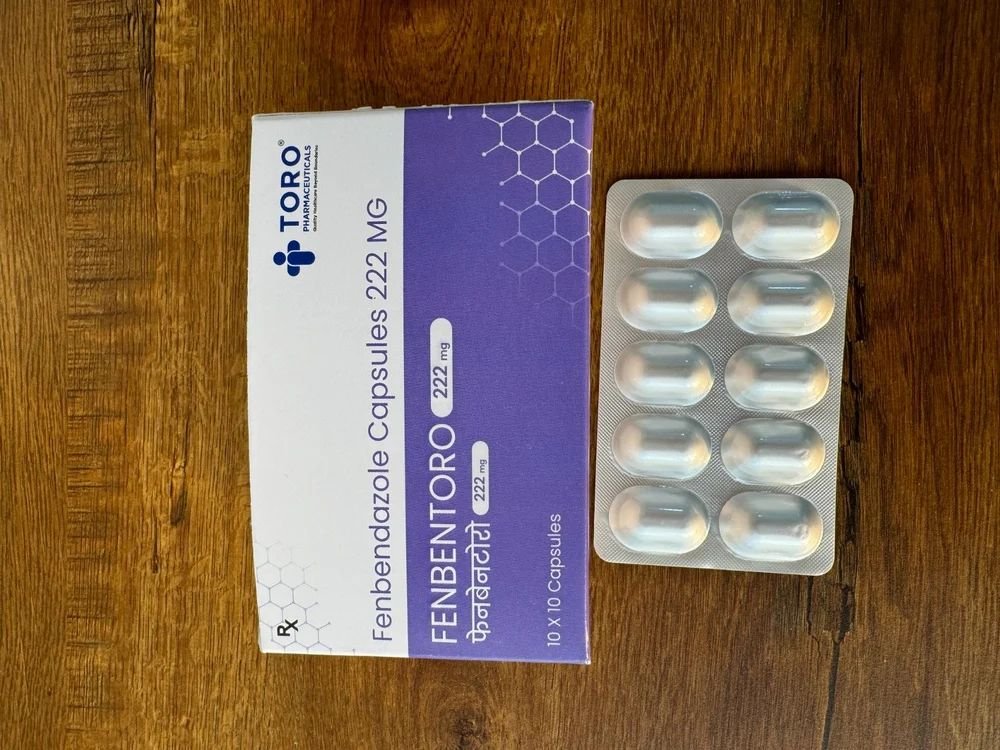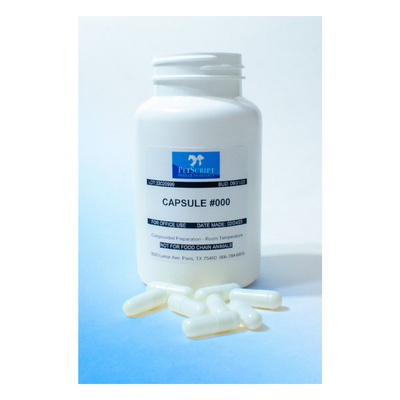fenbendazole 222: Frequently Asked Questions
Discovering the Systems Behind Fenbendazole and Its Effect On Animal Health
Fenbendazole is an extensively made use of anthelmintic understood for its performance against different parasites. Its key mechanism includes the inhibition of microtubule formation, which interferes with important processes in these pathogens. Past its antiparasitic residential properties, fenbendazole also appears to boost immune reactions and has anti-inflammatory benefits. Understanding these diverse results could reveal brand-new applications for animal wellness. Inquiries remain concerning its complete possibility and safety account.
The Pharmacokinetics of Fenbendazole
The pharmacokinetics of fenbendazole, a widely utilized anthelmintic in veterinary medicine, includes the study of its absorption, distribution, metabolic rate, and discharging within pet systems. After management, fenbendazole is rapidly absorbed from the gastrointestinal system, with peak plasma focus taking place within hours. Its circulation is influenced by variables such as tissue binding and lipid solubility, permitting it to pass through numerous tissues effectively. The medicine undertakes comprehensive metabolic rate primarily in the liver, where it is transformed into energetic and inactive metabolites. These metabolites contribute in the medication's total efficacy and safety and security account. Excretion takes place mostly with feces, with a smaller proportion removed by means of urine. The half-life of fenbendazole differs among varieties, which affects dosing programs. Comprehending these pharmacokinetic residential properties is vital for optimizing its healing use and making certain effective parasite control in veterinary techniques.
Systems of Action Against Bloodsuckers
Fenbendazole exerts its antiparasitic effects primarily via the restraint of microtubule formation in bloodsuckers. This disturbance impacts their structural stability and mobile features, bring about damaged basal metabolism. Because of this, the drug effectively compromises the survival and recreation of numerous parasitical organisms.
Inhibition of Microtubule Development
Inhibition of microtubule formation represents an essential mechanism whereby particular anthelmintic representatives, including fenbendazole, exert their effects on parasites. Fenbendazole binds to tubulin, a protein that develops microtubules, interrupting the polymerization procedure needed for microtubule assembly. This disruption hinders necessary cellular features, including mitosis, intracellular transportation, and structural honesty. As microtubules play a crucial role in preserving the shape and feature of parasitic cells, their inhibition results in cell cycle arrest and ultimate death of the parasite. This device is especially effective against nematodes, as their reliance on microtubules for flexibility and nutrient absorption makes them susceptible to fenbendazole. The restraint of microtubule formation is an important aspect of fenbendazole's therapeutic efficacy in veterinary medication.
Disruption of Basal Metabolism
Interrupting power metabolism is one more important device by which fenbendazole targets parasitic microorganisms. This anthelmintic changes the energy manufacturing pathways within parasites, primarily affecting their capacity to create adenosine triphosphate (ATP) By preventing glucose uptake and interfering with mitochondrial feature, fenbendazole restrictions the energy sources necessary for the survival and reproduction of these microorganisms. As an outcome, bloodsuckers end up being significantly prone to environmental stresses and immune responses. The interference in power metabolic rate not just influences the bloodsuckers straight however likewise minimizes their ability to absorb nutrients, even more impairing their development - fenbendazole capsules. On the whole, the disturbance of basal metabolism represents a fundamental aspect of fenbendazole's efficiency versus numerous parasitical infections, contributing significantly to enhanced pet wellness outcomes
Potential Side Impacts and Security Account
The prospective negative effects and security account of fenbendazole warrant cautious factor to consider, particularly in vet applications. While generally considered secure, some pets might experience adverse reactions, consisting of stomach disruptions such as throwing up and diarrhea. Additionally, neurological symptoms, although unusual, have been reported in sensitive individuals, highlighting the demand for monitoring throughout treatment.

Fenbendazole's safety in different varieties, including pet dogs and pet cats, has actually been recorded, however dose and duration of therapy have to be meticulously managed to decrease risks. Expecting or lactating pets may likewise need unique focus, as the effects on developing unborn children or nursing offspring are not fully recognized.
Regular veterinary consultations can help mitigate prospective side effects and assure the medicine is administered appropriately. Subsequently, while fenbendazole is an efficient anthelmintic representative, watchfulness regarding its side impacts is necessary for maintaining pet wellness.

Fenbendazole's Influence on Immune Feature
Fenbendazole has actually been kept in mind for its potential to regulate immune system feedbacks in pets. Its anti-inflammatory homes may add to improved immune function, giving a twin benefit in taking care of health (fenbendazole capsules). Understanding these results is vital for examining fenbendazole's duty in veterinary medication
Immune System Modulation

Anti-inflammatory Qualities
Anti-inflammatory effects stand for a significant aspect of fenbendazole's impact on immune feature. Research study indicates that fenbendazole might lower the manufacturing of pro-inflammatory cytokines, which are pivotal in mediating inflammatory actions. By regulating these cytokines, fenbendazole can possibly alleviate inflammation-related problems in pets. This anti-inflammatory activity not only aids in taking care of signs related to various diseases yet additionally boosts total body immune system effectiveness. In addition, its capability to promote a balanced immune feedback assists prevent too much inflammatory damage, which can result in persistent health problems. As a result, fenbendazole's duty in swelling monitoring underscores its importance in veterinary medicine, offering a dual benefit of antiparasitic activity and body immune system assistance for pet health and wellness.
Applications Beyond Traditional Parasitic Infections
While mostly identified for its effectiveness against various parasitical infections, fenbendazole has actually gathered focus for possible applications yet conventional scope. Current studies recommend that fenbendazole may have beneficial impacts on mobile health and immune response, making it an appealing candidate for taking care of other health problems in pets. As an example, its reported anti-inflammatory buildings might provide relief for pets experiencing chronic inflammatory conditions. In addition, some study indicates that fenbendazole might contribute in supporting the general wellness of pets by enhancing nutrition absorption and gastrointestinal health and wellness. Its prospective as an accessory treatment in cancer cells therapy has actually anonymous triggered interest, as preliminary findings suggest it might inhibit growth cell growth in certain contexts. These diverse applications highlight fenbendazole's convenience, urging more exploration right into its multifaceted benefits check my site for animal wellness beyond its standard use as a deworming agent.
Future Research Study Directions and Implications for Animal Health
The exploration of fenbendazole's possible applications has opened brand-new methods for study targeted at improving animal health and wellness. Future studies can concentrate on its performance versus a wider variety of microorganisms, consisting of germs and infections, therefore increasing its function in veterinary medicine. The effects of fenbendazole's mechanisms, such as its impact on immune modulation, warrant better examination to understand just how it can strengthen total health and wellness in different species.
In addition, research study may discover excellent does and formulations to make best use of effectiveness while lessening prospective negative effects. Examining fenbendazole's synergistic impacts with other drugs can lead to much more efficient therapy procedures. Longitudinal researches reviewing lasting results in pets treated with fenbendazole can provide beneficial understandings into its safety and security and performance. Generally, the continued expedition of fenbendazole provides promising potential to enhance animal wellness, necessitating a collective method amongst researchers, vets, and pharmaceutical designers to facilitate advancements in this area.
Regularly Asked Questions
Can Fenbendazole Be Made Use Of in Animals for Bloodsucker Avoidance?
The question of whether fenbendazole can be made use of in livestock for bloodsucker avoidance matters, as producers look for reliable treatments (fenbendazole). Research study shows it may provide benefits, however appropriate guidelines and veterinary advice are necessary for risk-free usage
What Is the Suggested Dosage of Fenbendazole for Various Pets?

Are There Any Type Of Recognized Medication Communications With Fenbendazole?
Existing knowledge indicates that fenbendazole might interact with certain drugs, potentially impacting their effectiveness or metabolic process. Veterinary professionals recommend speaking with a veterinarian to assess private pet situations and identify any feasible communications before administration.
Just How Does Fenbendazole Compare to Other Antiparasitic Drugs?
Fenbendazole is often compared to various other antiparasitic medicines based on efficacy, range of activity, and safety accounts. It is preferred for its effectiveness versus a vast range of bloodsuckers while generally exhibiting marginal side impacts in animals.
Is Fenbendazole Effective Versus Viral or Bacterial Infections in Pets?
The effectiveness of fenbendazole versus viral or bacterial infections in pets continues to be unproven. Study mainly focuses on its antiparasitic residential properties, with limited proof supporting any function in treating non-parasitic infections in vet medicine.